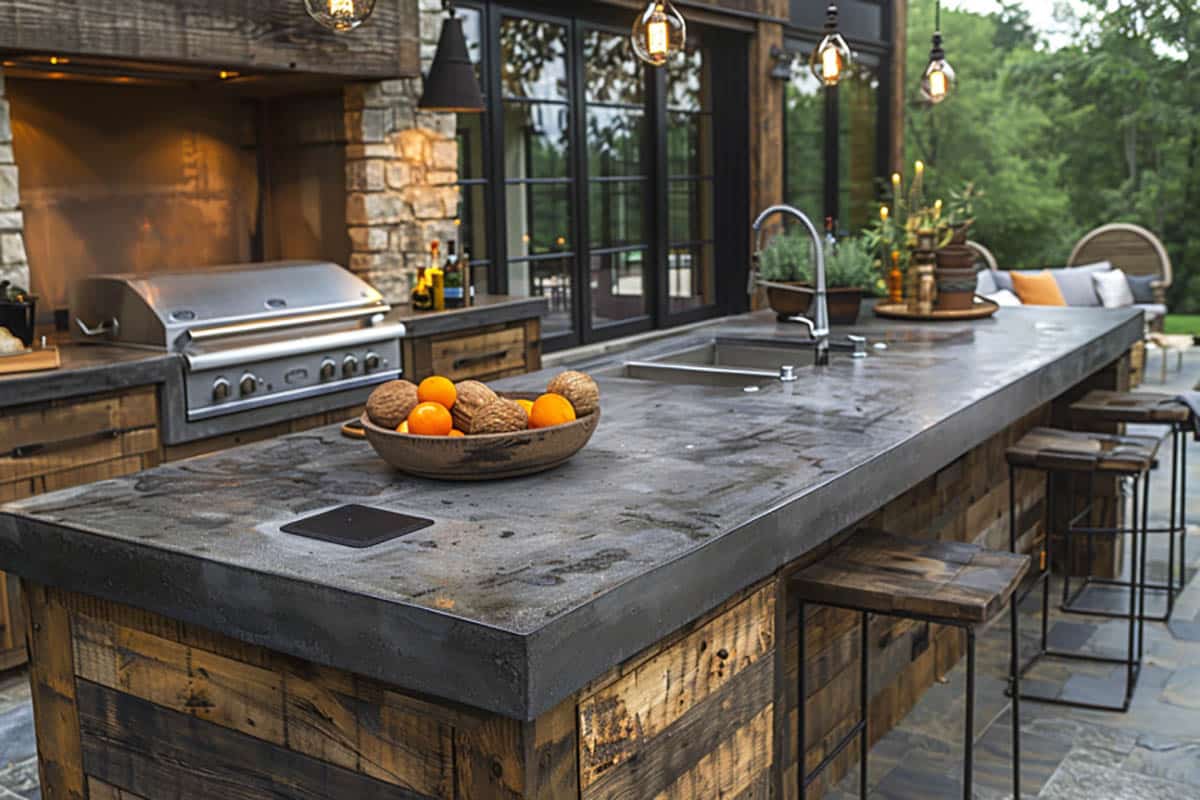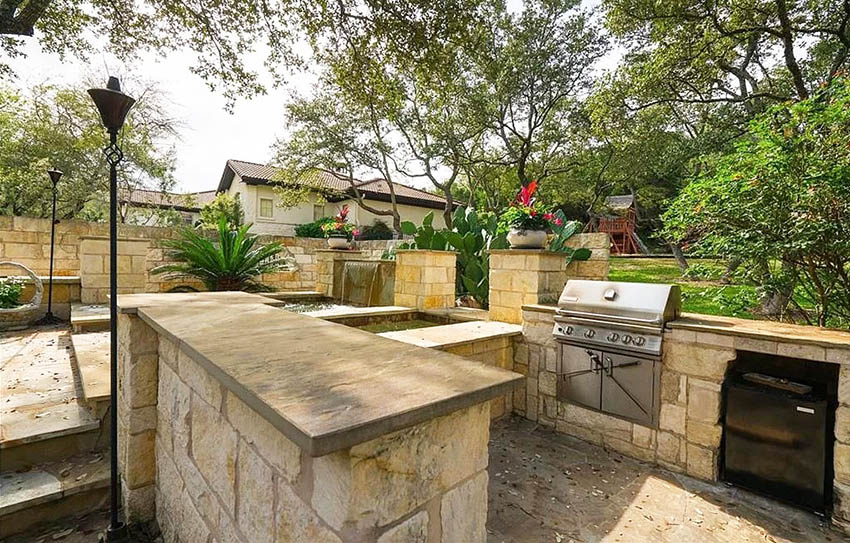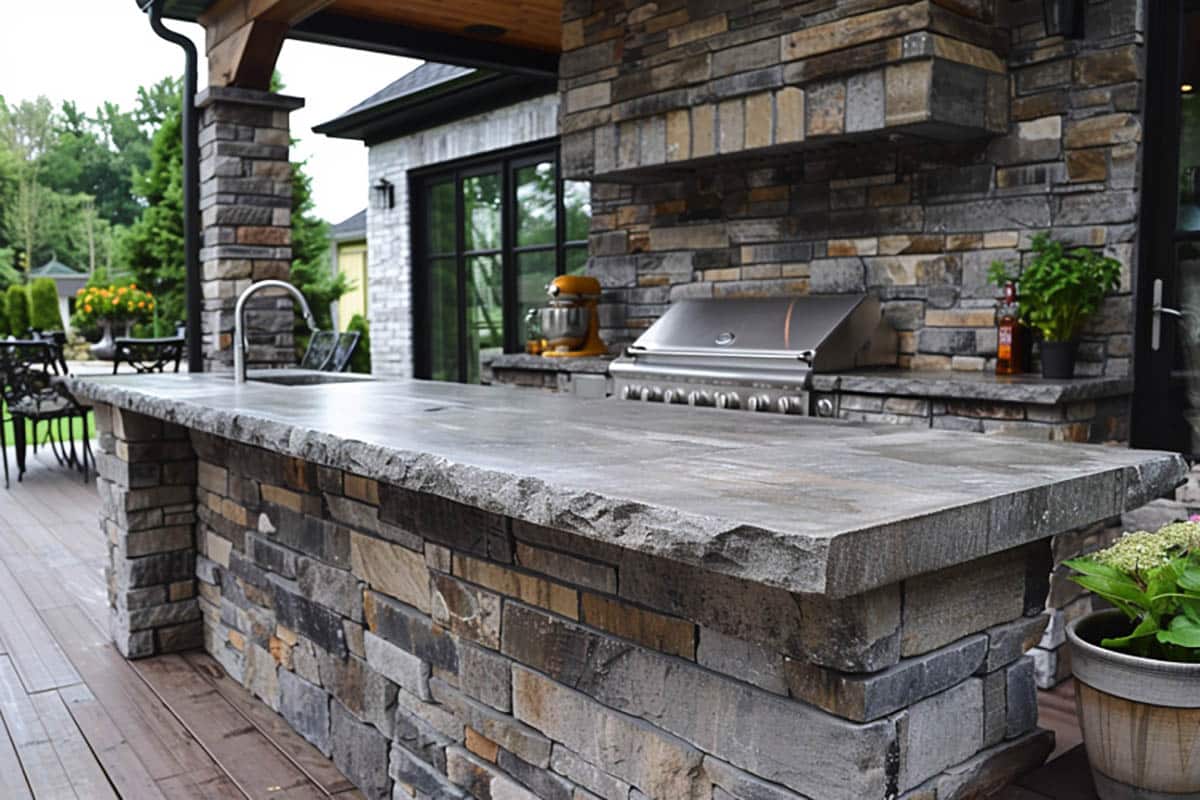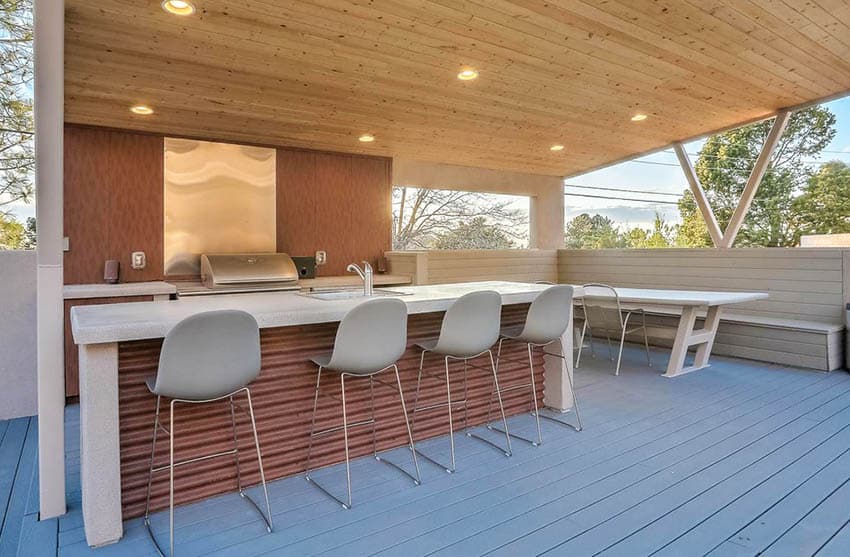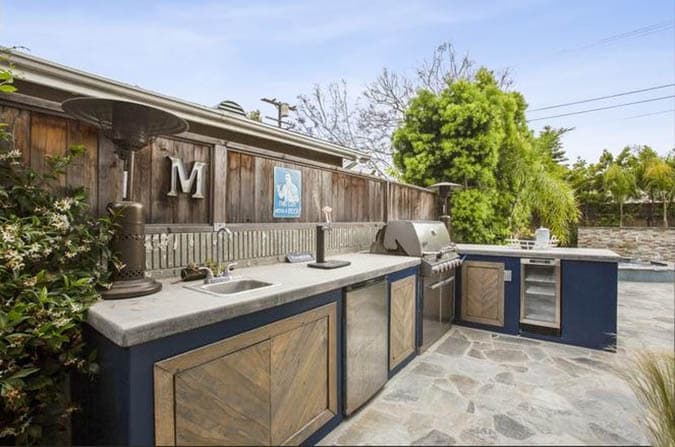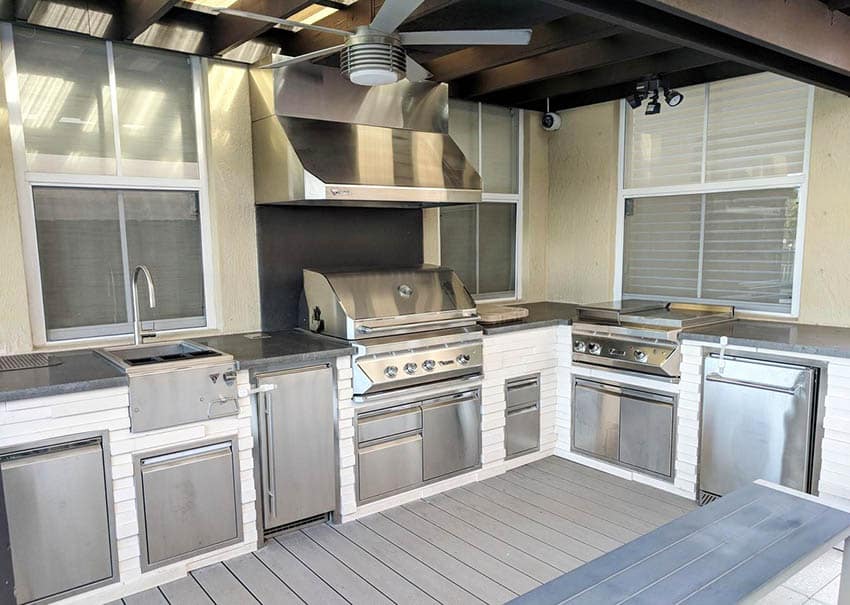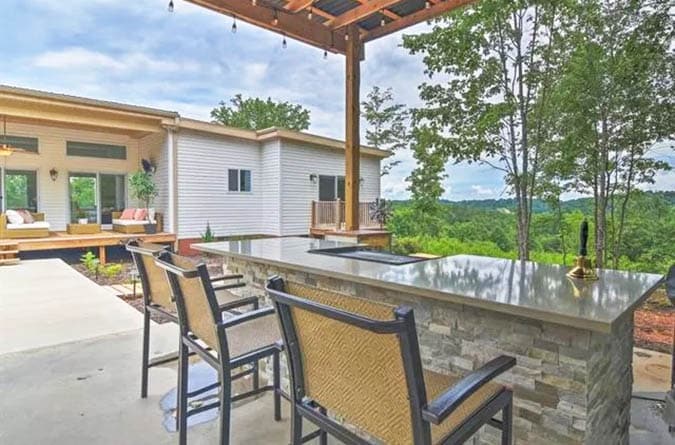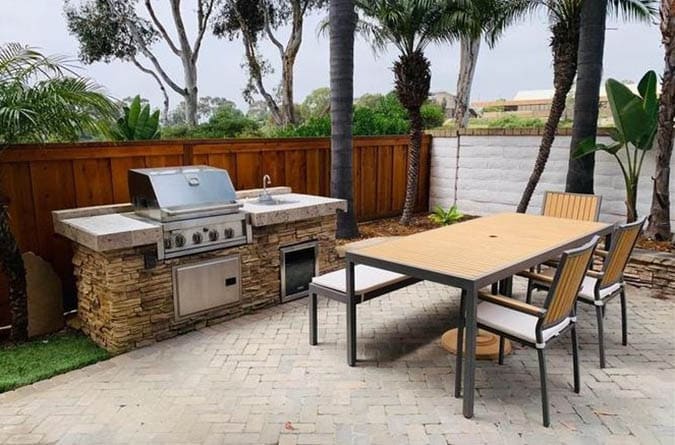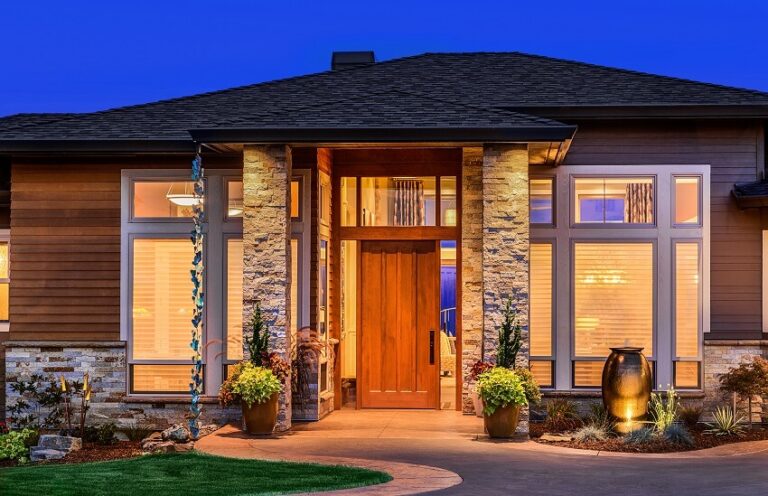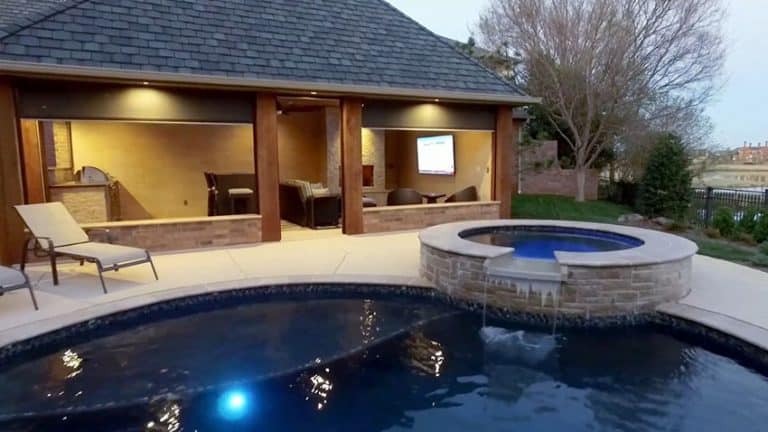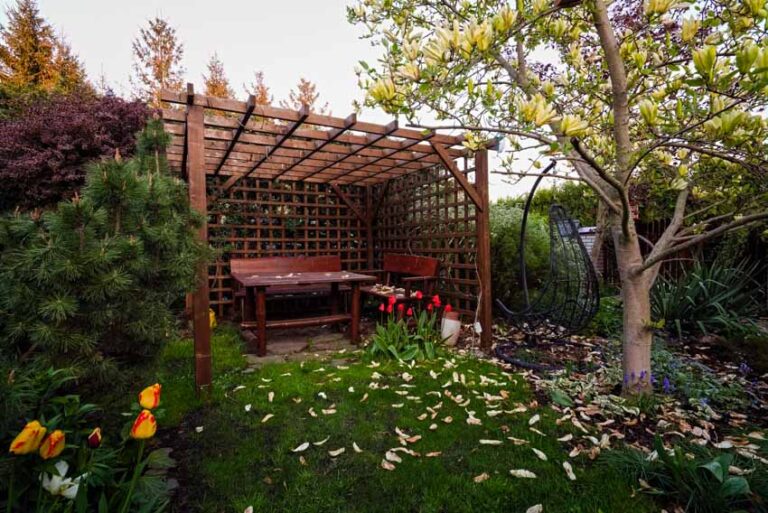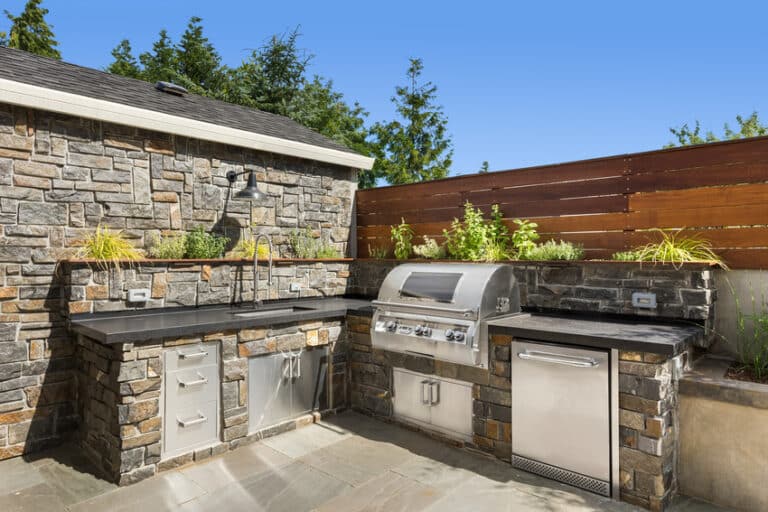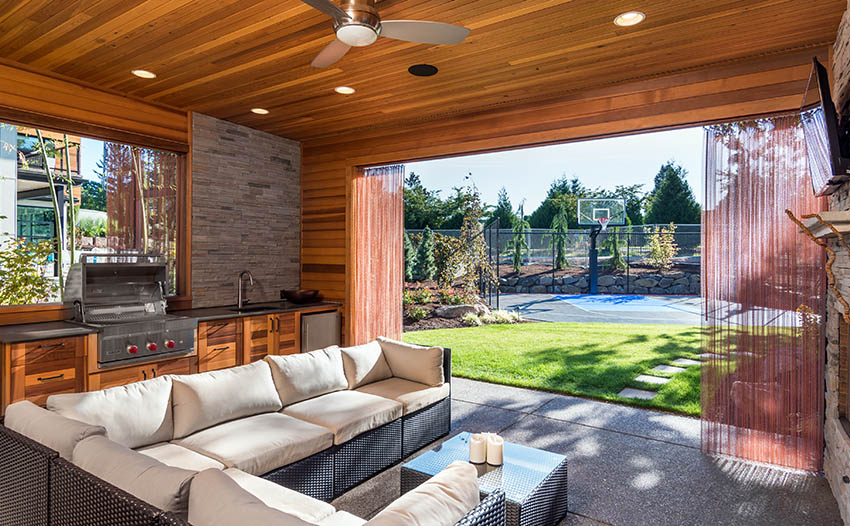Outdoor Kitchen Concrete Countertops (Benefits & Tips)
Creating an outdoor kitchen is a great way to enhance your backyard space. It gives you a place to create amazing dishes, entertain, and enjoy meals with family and friends. When you’re renovating or adding an outdoor kitchen to your patio or yard, there are certain considerations that you need to keep in mind, such as the type of countertop you’re going to use.
Concrete kitchen countertops come with a wide range of benefits. For one, they come in a variety of colors and finishes, allowing you to create almost any appearance you could dream of for your outdoor kitchen. In addition, concrete counters are durable, fairly easy to repair, and versatile in appearance.
Why Choose Concrete For Your Outdoor Countertops?
One of the best materials you can use for outdoor countertops is concrete. Concrete is durable, relatively inexpensive compared to other types of kitchen countertops, heat resistant, and long-lasting. Some other popular choices are granite, quartz, soapstone, and tile.
Concrete countertops can crack and can stain and show discoloration. The upside is that concrete cracks can be fixed, and practically every other type of countertop is susceptible to staining and discoloration, making concrete no different. The remedy is to be proactive and clean up messes, especially wine, oil, juice, or coffee, as soon as they happen.
Concrete countertops will need regular maintenance, such as periodic sealing, to maintain their color and protect them from moisture permeating their porous surface.
A popular question often asked is, “Are concrete countertops better than granite?” The answer to this basically breaks down to what type of surface appeals to you and your budget. Both concrete and granite are durable, with concrete costing a little less to install.
However, sealed granite is much more heat resistant than sealed concrete counters. Both types have surfaces that are easy to clean and maintain, provided that sealing is performed.
Concrete Mix For Countertops
Creating outdoor kitchen countertops is relatively simple. The first step in the process is to obtain a mix from which the concrete will be made. There are two ways to create a concrete mix: get it pre-made or do it yourself.
The first way to obtain a mix for your countertop is to purchase a pre-made mix from your local hardware store. There are several pre-made mixes on the market, each providing different benefits.
A mix that is high strength is perfect for homeowners looking to use heavy appliances on their outdoor countertops. Similarly, crack-resistant mixes help extend the lifetime of your countertop, especially in an outdoor setting.
You can always make your concrete mix if you can’t find a mix at the hardware store that suits your interests. The concrete mix comprises three basic ingredients: cement, sand, and gravel.
A general rule of thumb puts the ratio at one part cement, two parts sand, and three parts gravel. It’s important to stick to this ratio to ensure that the concrete has the proper texture for your countertop. One benefit of making the mix yourself is that you can choose the materials and create a custom design.
Once you’ve picked or created a concrete mix, you’ll need to add water. Water should be added only until the mixture is workable.
Adding too much water to the mix will result in weak concrete unsuitable for an outdoor countertop. Too little water in the mix, however, will make the concrete unworkable and difficult to shape into a countertop.
You can choose to either pour the concrete in place or pour it separately and move the countertop once it’s set. The benefit of pouring the concrete in place is that you won’t have to move the heavy slab once it’s set. Conversely, pouring the mix elsewhere gives you more space to work.
Concrete Sealer for Countertops
Once your concrete countertop is set, you might be tempted to go straight to using it for backyard barbecues or crab boils. Because your countertop is made of concrete, it will be naturally porous and susceptible to damage.
Damage can occur from stains, cracks, and water absorption. Moisture is potentially the most dangerous for outdoor concrete countertops, as they are constantly subjected to the elements.
Utilizing a concrete sealer is the best way to keep your concrete countertop in good shape. Not only will a sealer protect the surface of your countertop, but it will also enhance the color and sheen. There are a variety of sealers on the market, but not all are the right choice for an outdoor countertop.
You’ll want to choose a food-safe sealer. This would ensure that no one gets sick from any of the chemicals in food products were placed directly on the countertop. Additionally, you should choose a sealer that is heat- and scratch-resistant.
It’s best to find a product not affected by lemon juice or wine, as these acidic items can negatively affect some sealers. The Concrete Countertop Institute shares its picks for the best sealing product.
Once you’ve found a sealer that suits your needs, you can apply it to the countertop. While each product will have the manufacturer’s instructions to explain the sealer’s application process, some tips can be helpful.
You’ll want to ensure the countertop’s surface is clean and dust-free before applying the sealer. Remembering that less is more when using a sealer is also good.
It should be applied one thin layer at a time to ensure it evenly coats the surface. Finally, ensure the surface is fully dry before the countertop is used for cooking. You don’t want to go to all the hard work of sealing the countertop for it to be ruined while it’s still wet.
How to Build a Concrete Countertop for Outdoor Kitchen
For more details here is a video on the entire building process for outdoor kitchen countertops, including creating a mold and pouring the concrete mix. The total cost of this countertop project should be less than $300.
Concrete Countertop Cost
For a professional to create concrete countertops, including materials, labor, and installation, you can expect to pay, on average, about $65 to $135 per square foot. The cost will depend largely on where you live regarding local construction prices and the type of customization, if any you desire.
As a DIY project you can often complete a concrete countertop on your own for less than $300 in materials.

